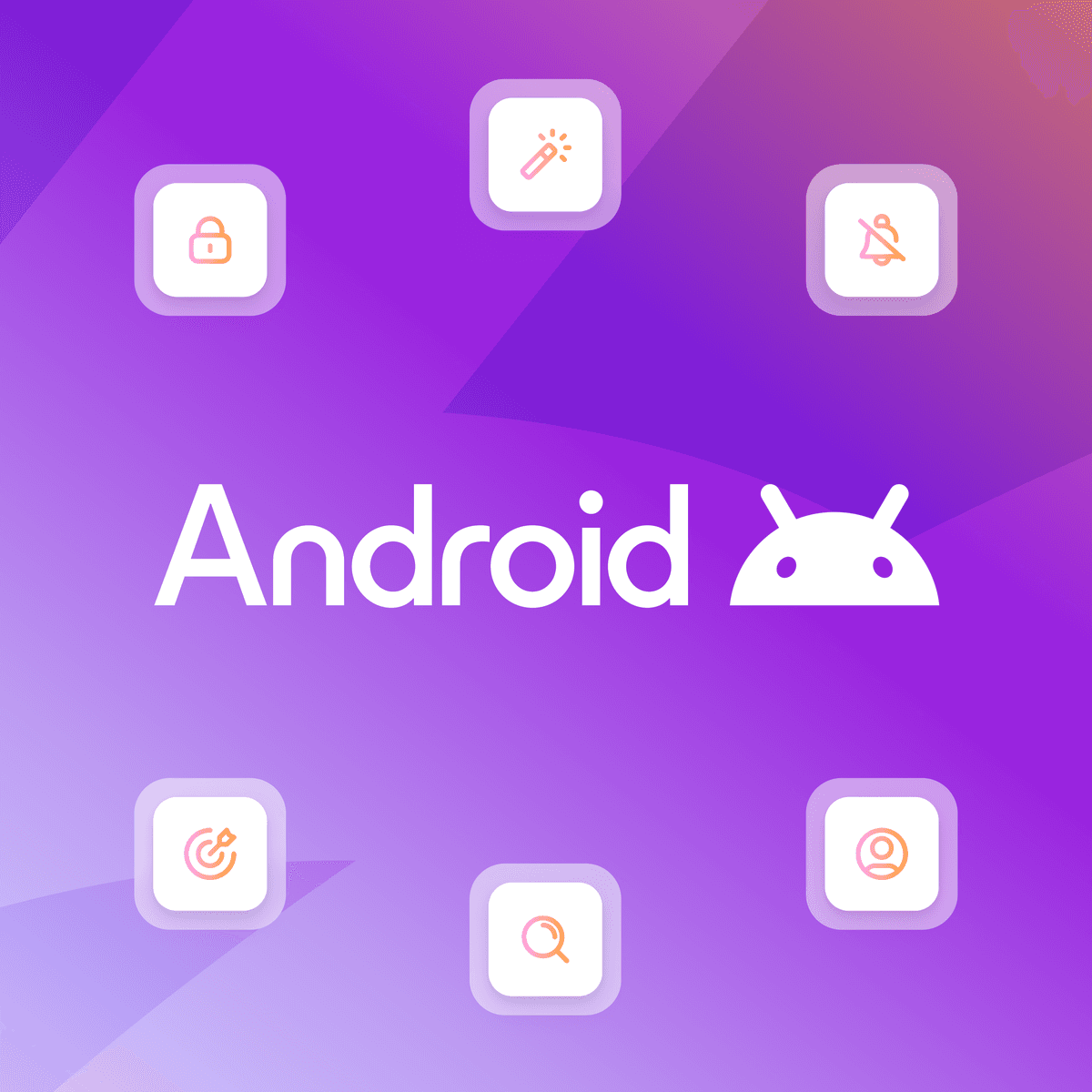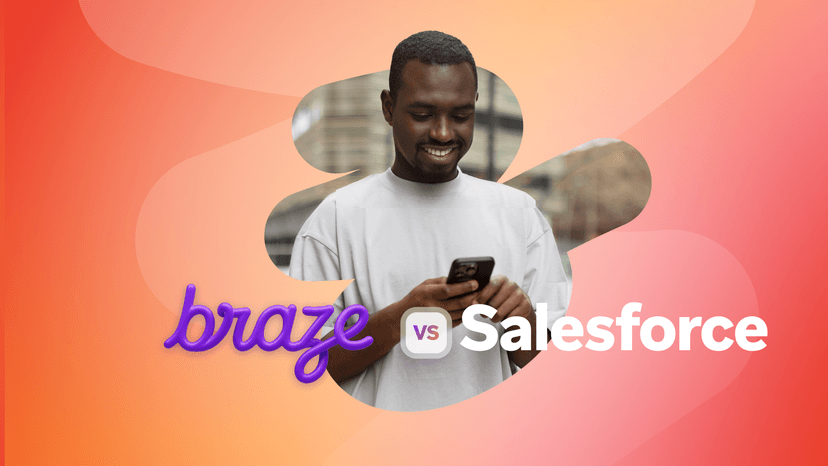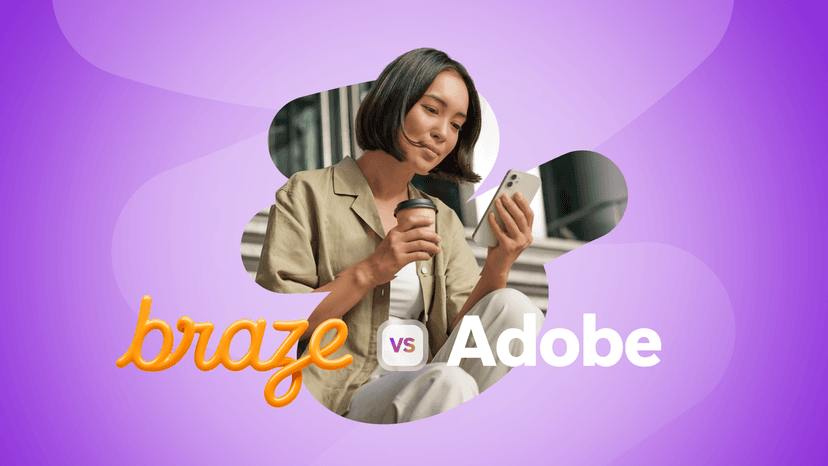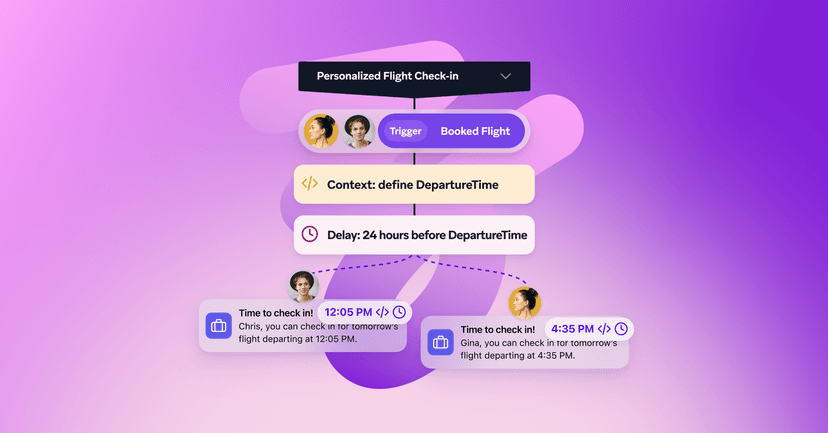What Android 15 Means for Customer Engagement
Published on May 30, 2024/Last edited on May 30, 2024/5 min read


Haley Trost
Director, Product Marketing, BrazeGoogle kicked off its annual Google I/O developer conference on May 14, where it announced dozens of enhancements across its entire suite of products. Artificial intelligence was at the core of most product announcements during the two-hour keynote, with AI expected to power everything from search overviews in Google Search to memory recall in Google Photos.
The focus on AI extended to Android announcements, too, with Google stating that their roadmap over the next few years will “reinvent what phones can do” and “make Android the best place to experience Google AI.” They followed up on this announcement the following day with the full list of new features coming to Android 15 and the release of the second beta of Android 15. Read on for a look at what’s coming to Android 15 and what it could mean for customer engagement.
What We’re Watching in the Android 15 Beta
We dug into the list of new Android 15 features to highlight a couple that may be relevant to your customer engagement strategies:
- Private Spaces. Android 15 will introduce a new feature called Private Spaces, which allows users to store sensitive apps in a separate space with a separate user profile on their Android device. When locked, Private Spaces hide those apps from notifications, settings, the recents view, and other parts of the phone. Users can unlock the Private Space with an extra layer of authentication. This feature is one to watch, especially for banking and health apps that users may consider “sensitive.” While the feature is subject to change between now and the final release, it looks as though Android push opens may be impacted for apps that are added to a Private Space. If users don’t see notifications for sensitive apps until they unlock the Private Space in their device, then it follows that they may be less likely to take timely action in connection with these messages, potentially impacting engagement.
- Improved Do Not Disturb Rules. Starting with Android 8, users could automate Do Not Disturb by setting rules to block notifications during certain times, while in a Google Calendar meeting, or while driving. Android 15 will bring improved Do Not Disturb rules to help users customize their preferences. These additional Do Not Disturb customizations are reminiscent of Apple’s Focus Modes, which were announced at WWDC 2022. We predicted then that Focus Modes might impact iOS push notification open rates since iPhone users could more easily and automatically silence their phones for scheduled blocks each day. Our later analysis showed that iOS open rates did indeed dip following the introduction of Focus Modes, so we’ll continue watching this feature to see if the new rules have a similar impact on Android push open rates.
While we won’t know the full impact of these new features until the final version of Android 15 is released and widely adopted by both Android apps and Android users, we do know one thing: A cross-channel messaging strategy is the best safeguard against unexpected OS changes like the addition of Private Spaces.
Why? To protect against potential impacts to a single channel like push notifications, you need a healthy mix of in-app and out-of-app channels, and you should back up the more fleeting, time-sensitive channels with longer-lasting engagement in the app. Finance and health apps in particular should consider adding a more persistent channel like Content Cards to the messaging mix to resurface key information for Android users who have set up Private Spaces and who may therefore be less likely to see push notifications.
“AI at the Core”
Google announced some major new AI features for Android, too. While these features only apply to native Google apps like Gmail and Google Photos, and so likely won’t impact other apps, we still think they’re worth noting:
- AI-powered search. You may have seen this feature already in a flashy commercial: An Android user circles something on their device with a finger, and relevant Google Search results automatically pop up on the screen. This “circle to search” feature is a nice user experience enhancement; it invokes memories of when “reverse image” searches first became available and we no longer had to come up with our own text descriptions to search for an image!
- Gemini AI assistant. Google is bringing its Gemini LLM to Android to infuse AI into its native apps, like Gmail, Photos, Messages, and more. The example they showed during the keynote was of a user generating a new image directly in a text exchange in the Google Messages app. In short, Android users will be able to create their own memes and image responses with simple text prompts. It’s another neat feature that allows users to accomplish quick tasks without leaving a Google app.
- On-device AI. All of these AI announcements were sure to raise questions about data privacy, and Google was ready. The company plans to introduce on-device AI, which will be able to understand the content of an Android device’s screen and provide AI-powered outputs without any of the data leaving the phone.
Final Thoughts
Android 15 is coming soon, with platform stability expected by July 2024 and the final release likely in August.
As we do with every Android release, our development team will continue to test the betas as they're released to ensure compatibility. We’ll release any necessary changes for the Android SDK once we've gotten word from Google that the final beta has been released, so you should plan to upgrade to the latest Android SDK version once it’s available.
Keep an eye on our Android SDK changelog as the release date for Android 15 gets closer!
Related Tags
Be Absolutely Engaging.™
Sign up for regular updates from Braze.
Related Content
 Article13 min read
Article13 min readBraze vs Salesforce: Which customer engagement platform is right for your business?
February 19, 2026 Article18 min read
Article18 min readBraze vs Adobe: Which customer engagement platform is right for your brand?
February 19, 2026 Article7 min read
Article7 min readEvery journey needs the right (Canvas) Context
February 19, 2026